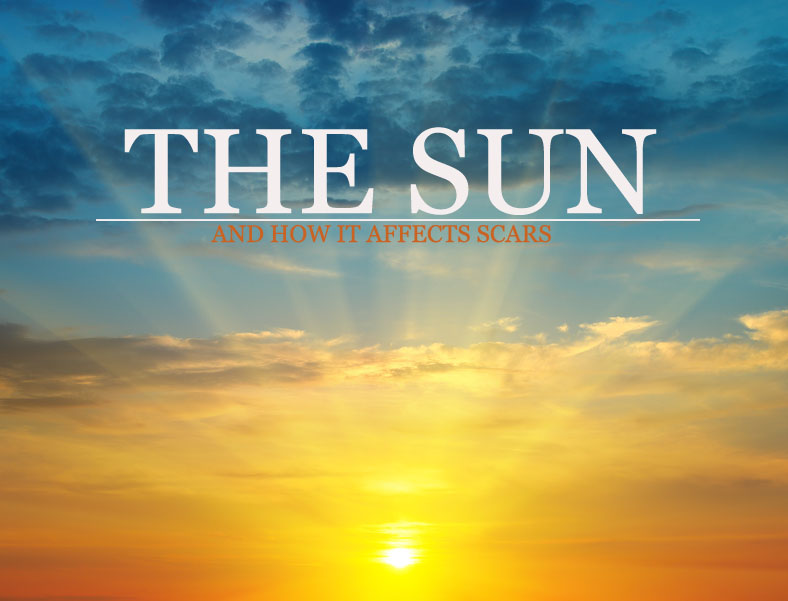
Did you know the sun can affect the appearance of scars both during the healing period and after they have healed? After the skin has been damaged and scar tissue forms, the new skin is very sensitive. Exposure to the sun can cause further inflammation in the tissue and create a multitude of side effects. Avoiding the sun helps with patient recovery by reducing the swelling, avoiding potential skin burns, minimizing tissue damage and scarring.
The sun plays a big part in how noticeable your scars will appear. It can darken a scar long after it heals and this is especially true for people who already have a dark skin tone. Many people believe tanning helps even out the skin tone between healthy skin and scar tissue to make the scar less noticeable. However, the UV rays of the sun can have a damaging and lasting effect on sensitive scar tissue. Healthy skin produces more melanin, or dark brown to black skin pigment, while tanning. The pigment absorbs the UV radiation and protects the skin cells from damage.
Scar tissue does not produce melanin which makes the scar tissue, as well as the surrounding skin, more susceptible to sunburn after a surgery or injury. Furthermore, scar tissue can sunburn more rapidly than healthy skin and alter the pigmentation of the scar tissue resulting in a discoloration or darkening of the scar. It can also cause the scar to thicken which creates the possibility of tissue damage.
The damage from UV rays can be permanent and the skin discoloration may never lighten to match the tone of the healthy tissue. Patients should completely avoid the sun for at least a week after surgery and limit any exposure thereafter.
It can take a full year for scar tissue to finally settle down. During this time, take precautions to protect the scar from harmful UV rays. Whenever possible, shield yourself from the sun to avoid exposure. Stay in the shade or cover up a scar with clothing. Sun hats and dresses are great for providing some protection but don’t forget to use sunscreen on a regular basis. This is especially true if the scar is on an area which can’t be covered easily. You should apply sunscreen each day before you go outside.
Be sure and use an SPF that will protect your scar from sun damage. An SPF number means the sun protection factor and an SPF of 30 or higher is recommended for the best results.
